A story of commitment to human dignity
For 35 years, Ruth Nesje and her husband Odd have been working tirelessly to contribute to the local communities of Tanga, Tanzania. TICC is their African dream and the accumulation of all their experiences.
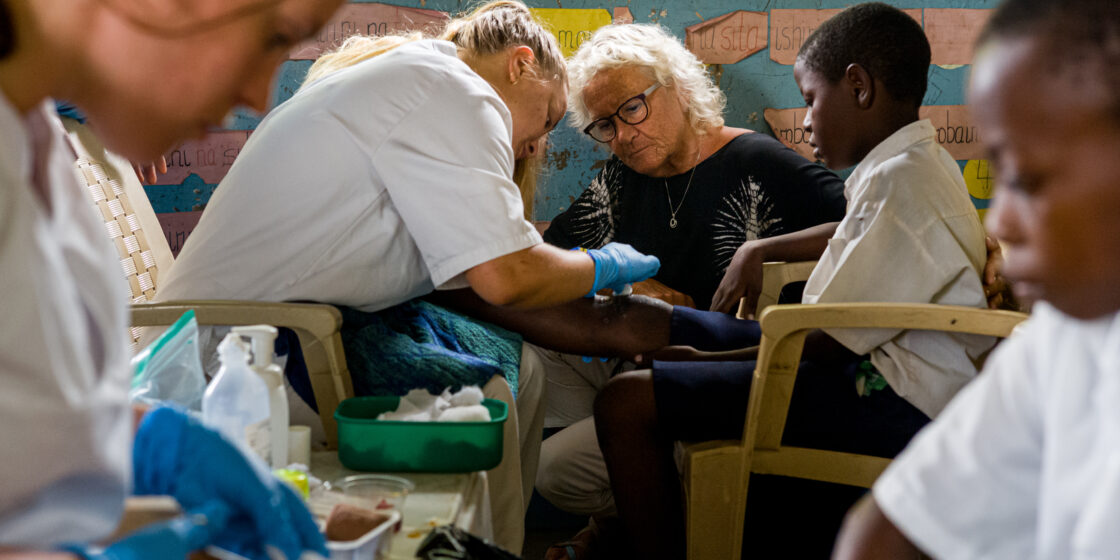
A new way of doing social work
It all started with a dream of a new way of doing social work. A more sustainable way. A place where locals and people from around the world could meet, exchange ideas and work together on important problems in a local context.
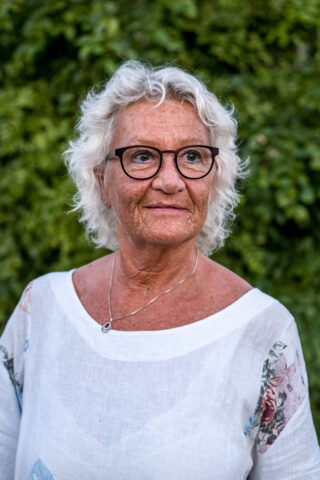
Now, that dream about TICC has come true, quite organically
Ruth Nesje, founder of TICC
The idea materialized in the minds of Ruth and her husband Odd in the early 2000s, but it would be a long journey before the first students and volunteers arrived at the center in 2008. A journey that would not have been possible without the great effort and energy the couple put into this lifetime project.
An African-Norwegian story
Born in Zululand, South Africa, Ruth grew up in Molde, Norway. After working in Norway as a leader for some years, she went to Tanzania in 1984 together with her husband and their two children. While Odd was busy constructing roads, Ruth could help the expats with health care. In only three months she learned the Swahili language, a door opener to understanding the culture on another level. In 1988, they came to Tanga, where they later should found TICC.
In Tanga, we got the sea. That was important to us, as both me and my husband grew up by the sea. So we stayed here, even though the climate is better in the mountains
22 years old
Ruth became the youngest District Health Manager in a Norwegian Municipality
3 months
In this time, Ruth managed to learn the Swahili language
Countless days
Went into the dreams and struggles with TICC
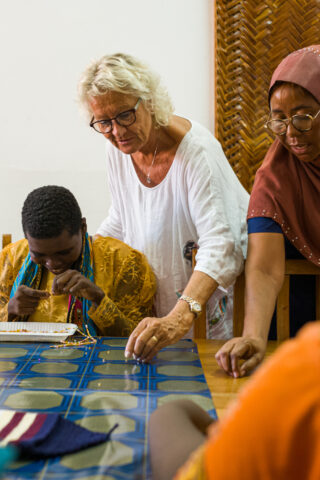
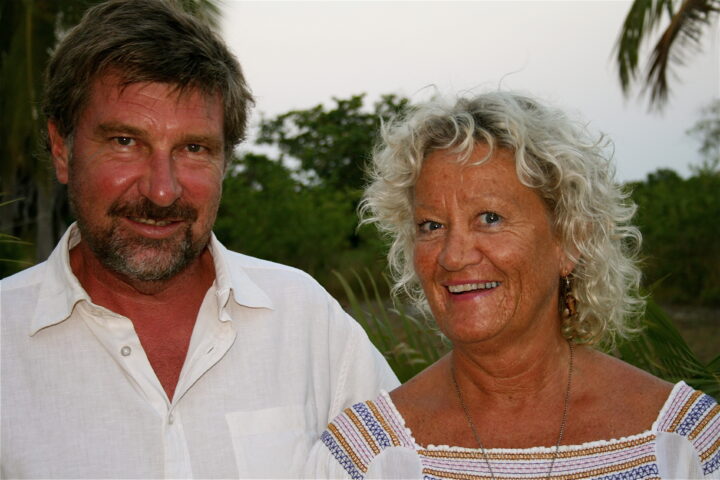
The entrepreneurship I got from my father, the verbal, social side from my mother
Planting a seed
Working with people in the AIDS programme of Tanga region, Ruth and Odd stumbled upon plenty of other social projects, many of them funded by foreign initiatives. One thing was lacking, though: continuity. ”There was many good social projects around in Tanga at that time, but none of them was sustainable, they would only run for up to five years or so – until the funding stopped”.
This observation planted a seed in the heads of Ruth and Odd. What if there was a space for good social projects that could run over a long time without being dependent on external funding? What if this space would additionally employ local workers and make them an important part of the social work? What if Europeans and Africans could work side by side helping to solve some of the challenges of Tanga region? And since Ruth has always liked leadership — to get people to play together, as she puts it — the seed grew stronger and stronger.
Early struggles
At first, nobody quite understood how Ruth and Odd wanted to make this happen. Not the local authorities, not the Norwegian social funds, and maybe not even the couple themselves. But everyone saw the need for better social work in Tanga region. And a fire had started burning inside Ruth that could not be stopped by the resistance they met, not by the difficulty of finding a suitable space and not even by the year-long process of dealing with the local authorities to get permission to start building the centre.
When Ruth and Odd found a piece of land in 2003 with many beautiful palm and mango trees on a peninsula a bit outside of Tanga city, right between a canal towards the Indian ocean and the jungle, they decided to simply buy it.
At that time, Ruth and her family were living almost all the time in Tanga. Only at times she would go back to Norway to quickly earn some money as a consultant and fund some more of their time in Tanzania.


The long journey towards the centre
After having bought the land in Tanga with the family savings, Ruth and Odd found the first investors to help build up TICC. Social investors not interested in profits — that was the most important criterion. And with the financial help of Ruth’s own consultancy and the Norwegian Nurses Organisation they could finally start building the centre in 2007.
Odd took the responsibility for the construction work. He supervised the local craftsmen and later educated all our maintenance guys, too. Without him, this would never have been possible.
2003
Bought the land in Tanga
2007
Started building the centre
2008
The first 25 students arrive
Besides the ongoing AIDS program, TICC's first social project was the family homes. All the other programs have developed over the years based on insights from the fieldwork. As Ruth put it: "We always try doing our projects in a participatory way. Only the wearer knows where the show pinches."
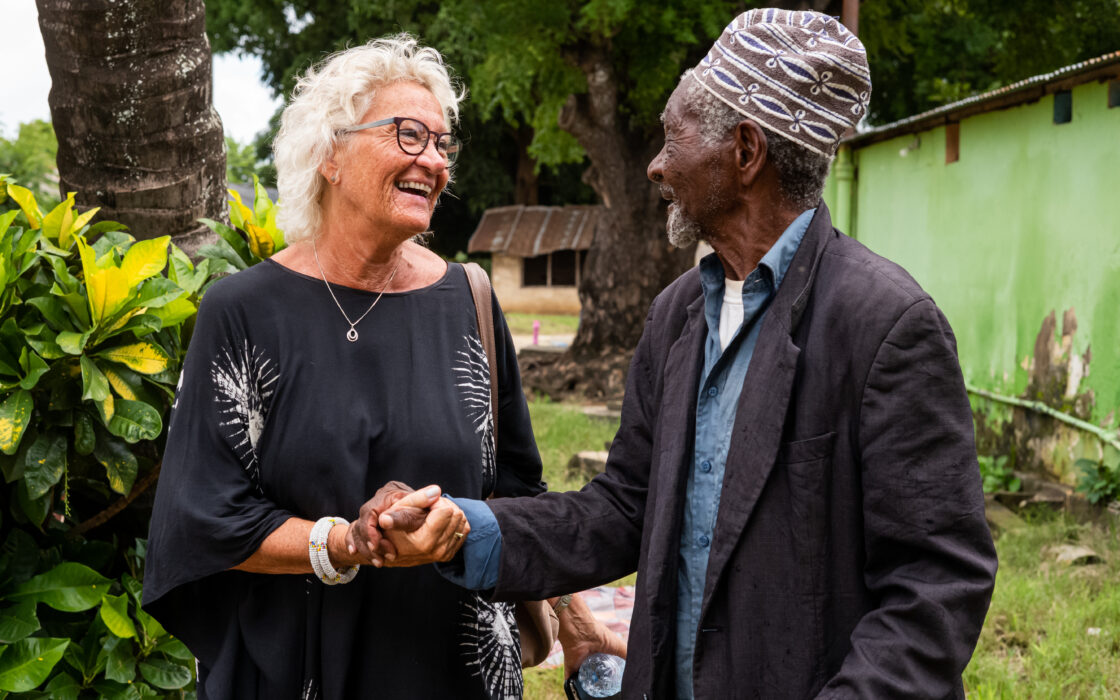
TICC Ltd.
Not generating any profits TICC could be organized entirely as welfare organization, but Ruth and Odd decided to instead establish an Ltd. that contributes its taxes to the society of Tanzania.
The biggest tax payer in Tanga region
Today, TICC is the biggest tax payer in Tanga region among medium size companies, and has many local employees and seven social programs. It is independent and self-sufficient, thanks to the students who pay for their accommodation at TICC as well as their universities that finance the practical education.
Doing good for locals and visitors
The students working in the social programs contribute not only with their work force, but with their empathy, friendliness and love towards the people they help. The few nurses of Tanzania simply don’t have the capacity to spend this time with the patients. Additionally, the students gain a lot of personal growth being here and dealing with things that we often take for granted in Europe.
In Norway, we like to be so sophisticated all the time and often miss out on the basics. Here it’s all about the basics.

We have had so many success histories here. This is what gives us the energy to continue
Dedicating your life
Starting TICC has required a lot from the two founders. Not only did they need to give up on their secure jobs in Norway, they also dedicated their entire lifetime to understanding the country, the culture, the language and the system. But even though there were tough times, they felt that they could not just give up after first having started something this big.
Luckily, all the investors of TICC contributed not only with the initial financial support to build the center, but also with workforce over time. Like the nurses and other volunteers from Norway that come to support the students and to assist us to create a good learning environment.
Adjusting for the future
You can easily tell from the way she is talking that Ruth surely will continue the work at the center for many years to come. However, a time will come when it's time to take a step back. Ruth and Odd's daughter and son in law are already involved in the work the centre does, and the family has many plans for where TICC could head.
In the future, we want to be even more out in the field — in the villages, with our students.
There’s plans about involving students from different disciplines, too: architects, journalists, maybe photographers. And a closer collaboration with local nursing students, connecting them with the Europeans.
As a social business working in a local context, TICC is not interested in growing a lot, but absolutely willing to adjust their work based on the changing needs of the local people. Many regions and countries have asked Ruth if she could establish something similar there. She always declines, wanting to dedicate all her efforts into TICC. ”However, we could absolutely help others to establish similar things”.
Backed with the passion of Ruth, Odd, and the entire team, TICC has over the years managed to become an example of a dream company for many countries: paying plenty of taxes, fighting corruption, and doing important social work.